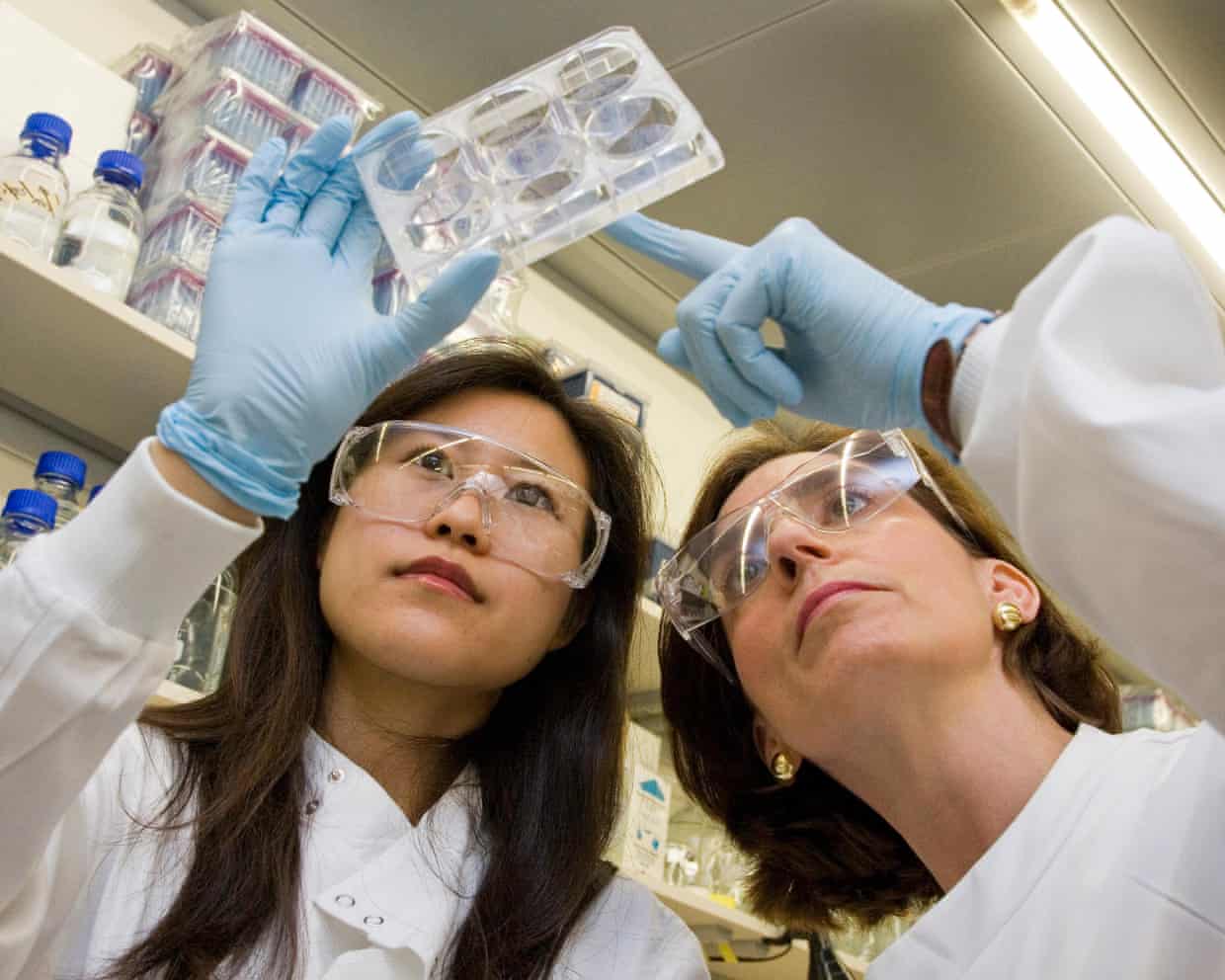‘Patients will suffer’: tales from the frontline of the UK pharma crisis

‘We want to see more investment flow to Britain,” the chancellor, Rachel Reeves, urged of big pharmaceutical companies this month, as she indicated that the government was willing to increase the price it pays for NHS drugs.Ministers are likely to announce a rethink on pricing soon, potentially by the end of this week.But the size of that rise remains uncertain.The big question is whether it will be generous enough to convince pharmaceutical companies, which account for a near-£100bn slice of the UK economy, to resume the investments they had paused in a strong-arm campaign to secure concessions from government.Caught in the middle are the 163,600 people attempting to navigate a career in biopharmaceuticals, which made annual sales of £98.
4bn in 2023-24.The trouble began in September, with a surprise decision by the US pharmaceutical Merck, known as MSD in Europe, to ditch plans for a £1bn research centre in London.The move appeared to cause a domino effect.Nearly £2bn of pharma projects have been scrapped or paused so far this year, threatening more than 1,000 jobs.The picture is complicated by geopolitics.
Donald Trump has been pressuring Merck and its competitors to lower their US prices, which can be as much as three times higher than those in the UK and the rest of Europe, where nationalised health services often have the upper hand in negotiations,Patrick Vallance, the science minister, has tried to defuse the row,Ministers are thought to have drawn up proposals to raise the amount the NHS pays pharmaceutical firms for medicines by up to 25%,This would require additional funding, adding to Reeves’s shortfall ahead of the budget on 26 November,Meanwhile, a shadow hangs over UK pharma, whose leaders say the row could cause long-term damage to the industry – and ultimately to patients.
“As a patient organisation, we are concerned,” says Giles Lomax, chief executive of the charity Spinal Muscular Atrophy (SMA).He is a father of twins who have SMA type 2, a neuromuscular condition that causes progressive muscle wasting and weakness.Lomax says “patients will suffer” if the standoff continues, adding: “The geopolitical events, particularly in the US, are very challenging and it does make boardroom investment decisions tricky.But we must keep the patient in the centre of this.“It’s extremely important that this issue is resolved as quickly as possible,” he adds.
“For people living with SMA, every moment matters as once muscles start to degenerate it’s impossible to get them back, failure to get access to treatments could be the difference between breathing normally or needing assisted support.”Better drugs do not just cost money, they can ultimately save money, argues Lomax.Zolgensma, a one-off injection developed by the Swiss manufacturer Novartis, is one of three gene therapies on the market that treat SMA.It has an eye-watering NHS list price of £1.8m.
But if given early, before symptoms develop, it can often enable children to lead a normal life.“These treatments are expensive, but they are hugely life-changing,” says Lomax.“A care package for a child could cost £300,000 a year.So in six years, you’ve paid off your Zolgensma.”David Poolman, 22, graduated from the University of Bath with a degree in biomedical sciences in July and wants to work in pharma once he has gained his doctorate.
“It’s not encouraging if companies are pulling out of the UK,” Poolman says.In a difficult graduate jobs market, he says there is a lot of competition for PhD positions, even though he has lab experience from a one-year placement at New York University.It is just as hard to get a job as a research assistant, with 170 candidates for one role that he applied for recently.Graduates are struggling generally, with a 35% drop in hiring by employers over the past year.“In industry, there are probably fewer jobs available because companies are conscious of costs and tariffs,” Poolman says.
“Whereas in universities, there’s still lots of roles being advertised, but the competition is just really high for them.”Poolman’s ambition is to complete a PhD before pivoting into research for a commercial firm, or starting a new company of his own.“I wouldn’t say that I’m super-optimistic about science in the UK.But still, there was a big breakthrough at University College London the other day in treating Huntington’s disease, and neurodegeneration is the area I want to go into.That sort of thing gives me hope.
”Janet Hemingway, a professor of vector biology, ran the Liverpool School of Tropical Medicine (LSTM) for nearly two decades, and in 2020 set up the Infection Innovation Consortium (iiCon), which brings together industry, academia and NHS clinicians,She says demand for its clinical trials remains strong but she has broader concerns,Infectious disease treatments are “effectively a broken market because pressures have pushed down the cost of antibiotics to such low levels”,While low prices are good for patients and the NHS budget, they also mean that the industry is not prepared to invest in antibiotic research any more, she says, and so governments rely on philanthropic and other organisations, such as the Bill & Melinda Gates Foundation, to develop new drugs,But medical professionals argue that is not enough, and hospitals globally have recorded an alarming rise in infections from superbugs that are resistant to antibiotics, leading to more deaths.
Hemingway warns that if the same were to happen with other drugs, to treat cancer for example, “we are going to break the standard market eventually, leaving the UK in a position where new products would only be developed by government stepping in and subsidising the cost of the research, rather than pharma carrying the cost of that research”.Companies need a reasonable profit margin, she says.The question is, how much margin is reasonable?Opposite the entrance to King’s Cross railway station in London stands a half-built, glass-fronted research centre that was set to house the now scrapped Merck research hub.The 10-storey building would have held 800 staff, with laboratories at the lower levels and offices above.Michael Wiseman, head of campuses at British Land, the property developer behind several nearby lab buildings in the area, which is known as the Knowledge Quarter, recalls that when MSD announced its investment in London in 2017 it was a big moment.
“The decision was made only a few years after the [nearby] Francis Crick Institute established the idea of science in London.And so there was something symbolic about it.We, like others, thought that would be the first of many.”But the pace of investment has slowed.Nearly 10% of lab space in the UK sits vacant, with the rate doubling in the year to June, according to data from CoStar.
After record activity in 2024, take-up dropped to the lowest level in 12 years, and no new lab space construction has started across the UK since last summer.Wiseman is reassured that the number of viewings by potential tenants has not eased, and is now counting on smaller biotech firms to fill the space vacated by larger groups.His forecast is cautiously optimistic: “We’re probably going to be lacking some of the bigger pharma demand for a period of time.But with what’s being built, the smaller end of the market should be sufficient to take up that space.”

Lib Dem members criticise ‘trans-exclusionary’ rule change for party elections
Liberal Democrat members have reacted angrily to an unexpected change in rules governing the party’s internal elections to reflect the supreme court’s ruling on biological sex.The party’s LGBT+ group described the move as “explicitly trans-exclusionary” while Young Liberals said the changes were “unacceptable and untenable”. Some Lib Dem MPs are understood to be perplexed at the sudden turnaround.Voting in elections for posts on internal committees as well as the role of Lib Dem president began on Tuesday. Members were informed on Monday that after legal advice the rules governing quotas in place to ensure fair representation of women on those committees were changing

Kemi Badenoch smiles from the stump as she heads towards oblivion | John Crace
It’s common knowledge that Kemi Badenoch is not an early morning person. Or an any time of morning person. Look at her in the wrong way and you’re likely to catch an earful.So it must have taken a lot of persuading from Conservative central office to get her out and about at 9am. But needs must

Ministers to delegate some public appointments in attempt to cut delays
Ministers are planning to speed up public appointments to bodies such as Ofcom, the Environment Agency and BBC by allowing more of the hiring process to be delegated to senior officials.In the biggest shake-up of the public appointments process in a decade, the Cabinet Office is producing new guidance governing how candidates can be picked for about 4,000 public roles.The changes are being made because of excessive delays in the hiring system and extended vacancies, with ministers currently consulted at every step of the process – meaning only about one in seven appointments were completed in less than three months.Under the new rules, ministers will be able to choose to delegate much more of the process to officials, while retaining the final say over who is chosen and the job specification.Others changes include allowing candidates to remain on a “reserve list” for two years rather than 12 months, ensuring that they can be considered and hired quickly if an appointment falls through – without having to run an entirely new hiring campaign

No 10 refuses to say if ethics adviser saw proof Reeves’s rental breach was ‘inadvertent’
Downing Street has refused to say whether Keir Starmer’s adviser on ministerial conduct has seen any evidence to support Rachel Reeves’s claim she made an “inadvertent” mistake in failing to get a licence to rent out her south London home.As pressure mounted on the chancellor, despite the prime minister saying an apology should end the matter, No 10 also declined to say whether Reeves contravened the ministerial code or had broken the law in breaching Southwark council rules.In an exchange of letters with Starmer late on Wednesday, Reeves said that when she rented out the house she had not been told by the lettings agency that homes in that area needed a £945 licence before they were rented out.In his reply, Starmer said that having consulted his independent adviser on ministerial interests, Laurie Magnus, he was satisfied the breach was “inadvertent” and that given her prompt action once she knew about the licence, an apology was sufficient.Pressed repeatedly at a media briefing whether Magnus had seen any evidence to back up Reeves’s case or had simply taken the chancellor at her word, a Downing Street spokesperson refused to say, noting that Magnus’s advice was always confidential

Tories will not deport legally settled people, Badenoch clarifies
The Conservative MP Katie Lam spoke “imprecisely” in stating the party would deport large numbers of legally settled families from the UK, Kemi Badenoch said, adding she had no plans to make tougher immigration rules retrospective.Badenoch’s comments to reporters after a speech in London end days of confusion over Tory migration policy, particularly over whether many thousands of people who have made lives in the UK could lose their status of indefinite leave to remain (ILR) under a future Conservative government.In an interview earlier this month, Lam, a shadow Home Office minister, said that the party’s policy was to revoke ILR, and people would “go home” in order to ensure the UK was mostly “culturally coherent”.Her comments prompted some Conservative MPs to complain to party whips, and renewed focus on a Conservative draft bill tabled in May, under which people would lose ILR if they or a dependant claimed any benefit or if their income was less than £38,700.While Badenoch’s spokesperson initially said Lam was “broadly in line” with party policy, the Tories then said its policy on ILR had changed, while refusing to say if changes to rules would be made retrospective

Boris Johnson tells Tories to stop ‘bashing green agenda’ or risk losing next election
Boris Johnson has warned the Conservatives they will not win the next election by “bashing the green agenda”.The former prime minister said he had not seen the Conservatives “soaring in the polls as a result of saying what rubbish net zero is”.Johnson’s intervention comes after Theresa May and John Major criticised the Tories for speaking out against net zero, making him the third former prime minister to step in on this issue.Kemi Badenoch has committed the party to repealing the Climate Change Act and abandoning the commitment to reach net zero by 2050, arguing that the target threatens to bankrupt Britain.The repeal of the act would remove the need to meet “carbon budgets” – ceilings, set for five-year periods, on the amount of greenhouse gas that can be emitted – and disband the Climate Change Committee – a watchdog that advises on how policies affect the UK’s carbon footprint

Microsoft reports strong earnings as Azure hit by major outage

Meta reports mixed financial results amid spree of AI hiring and spending

Google parent Alphabet beats forecasts with first $100bn quarter

Nvidia becomes world’s first $5tn company amid stock market and AI boom

Character.AI bans users under 18 after being sued over child’s suicide

Apple hits $4tn market value as new iPhone models revitalize sales